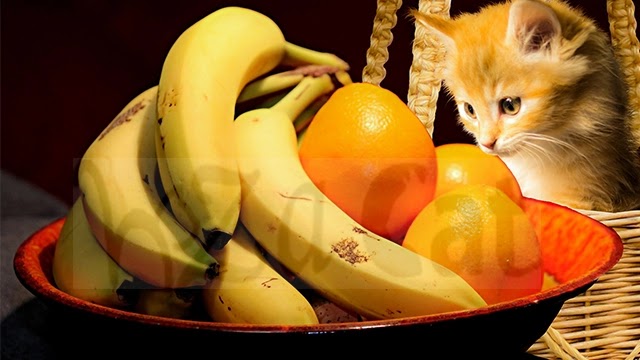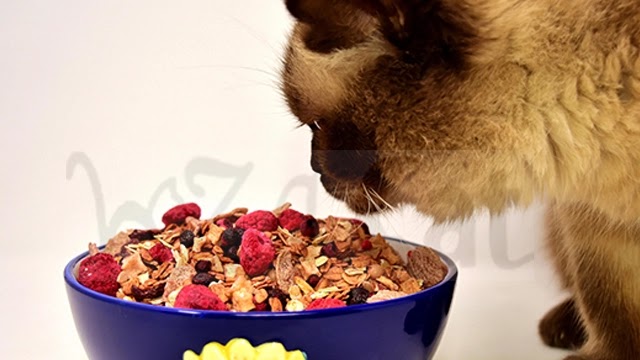Can cats and dogs eat fruit
There are many advantages of remembering organic products for a sound human eating regimen, however as a pet parent, you might ask yourself: could my pets at any point eat organic products? Assuming that you're enticed to take care of these scrumptious treats to your shaggy companion, you'll be glad to realize that you can remember natural products for your pet's nibble schedule, the same length as you adhere to those organic products that are protected.
A few organic products can be poisonous to your pet, so it's vital to twofold check with your veterinarian prior to sharing your organic product salad. Additionally, recollect that considering your pet's general diet is vital. Assuming your canine or feline is now eating an even eating routine, ensure that you don't get out of hand with taking care of them a natural product, regardless of whether it is a nutritious treat.
Can Dogs eat fruit?
As a rule, you're asking yourself, "Can puppies eat organic products?" the response is absolutely yes, however just particular sorts and restricted measures of natural products.
Moderation is the way to integrate a natural product into your canine's feasts. Extreme ingestion of natural products (even safe natural product) may cause a digestive disturbance, looseness of the bowels, or swelling. It is suggested that any food outside your canine's essential sustenance be under 10% of their general calorie consumption. All food varieties examined underneath ought to be talked about with your veterinarian prior to providing for your canine.
Furthermore, make certain to eliminate any stifling perils, like ball-molded bits of organic product, seeds, pits, and stems, some of which can be poisonous.
Here are a few safe natural products for canines, including suggested fitting piece sizes:
- Apples (1-2 cuts): High in fiber and protein, this organic product is an extraordinary wellspring of nutrients An and C. Try not to take care of your canine the center on the grounds that the seeds contain a substance that can deliver cyanide.
- Apricots (1 cut): It's a yummy, sweet treat, yet cautiously and totally eliminates the leaves, stem, and pit preceding serving on the grounds that these are harmful to canines, felines, and ponies.
- Bananas (1-2 pieces): Containing potassium and carbs, this flexible organic product ought to be cut into roughly one-inch lumps.
- Blackberries (2-3 berries): Full of cell reinforcements and fiber, this berry likewise packs nutrients A, C, K, and E.
- Blueberries (2-3 berries): This berry serious areas of strength for contains properties and is considered a superfood for people and canines.
- Melon (1 piece): This melon contains beta-carotene, a shade that makes it orange, and supports the improvement of vision. Cut it into one-inch lumps.
- Cranberries (1-2 tablespoons): Cook this berry in water (and no different fixings) prior to serving it to your canine.
- Kiwis (1/2 cut): notwithstanding fiber, kiwis give vitamin An and potassium.
- Mango (1-2 cuts): Before serving this outlandish organic product to your pet, strip it and eliminate the pit to stay away from stomach-related issues. The pit is harmful.
- Peaches (2-3 pieces): Skip the canned variant (a lot of sugar) and pick the new organic product, cut up into scaled-down pieces with the harmful pit painstakingly eliminated, for a treat that is high in vitamin A.
- Pears : Pears are good food for cats as they are rich in fiber. Pick pieces of the entire leafy food the center and seeds, which are poisonous.
- Strawberries (1/2 berry): This yummy berry contains nutrients B1 and B6, accommodating for your canine's muscles says VetInfo.
- Watermelon (1 cut, seedless): Because it's 92% water, this melon is a go-to for people and canines to forestall lack of hydration when temperatures climb.
Can Cats eat fruit ?
Not at all like canines, felines aren't keen on the pleasantness of organic product. Vetstreet makes sense of, natural product can be a decent choice (with some restraint, obviously) as a substitute for feline treats.
- Apples
- Bananas
- Blueberries
- Melon
- Strawberries
- Watermelon (seedless)
What Fruits to Avoid with Dogs and Cats
Devouring some unacceptable plant-based food can present serious wellbeing gambles for your pet. The accompanying natural products ought not be given to your canine or feline:
- Cherries: The cherry pit contains cyanide, which is harmful to canines and can be deadly.
- Citrus (oranges, tangerines, clementines, grapefruit, lemons, limes): Although the natural product itself may not cause stomach related trouble, citrus plants are harmful to canines and felines. "The organic product, leaves, strip, seeds, and stems of citrus establishes all contain citrus extract in changing sums," makes sense of the Royal Society for the Prevention of Cruelty to Animals New South Wales.
- Grapes and raisins: These food varieties can cause serious stomach related issues in your pet, including loose bowels, regurgitating, and laziness. They might try and cause intense kidney disappointment in felines and canines, noticed the American Society for the Prevention of Cruelty to Animals, so it's essential to get them far from your little fuzzy companions.
- Tomatoes (Yes, we're thinking about them an organic product): Red ready tomatoes are typically smart for pets, however a few green tomatoes contain poisons that can make pets wiped out, so counseling your veterinarian first is in every case best.
Will Dogs eat natural products ? Will cats eat organic products? Totally — on the off chance that it's protected organic product with some restraint. Nonetheless, it is important to caution that a few organic products are not beneficial for canines and felines with specific ailments, so it means a lot to check with your veterinarian prior to bringing any new food sources into your pets' sustenance.
Assuming you're hoping to change up your pet's tidbits, you have numerous protected choices from which to pick. Similarly as while looking for the right canine food or right feline food, watch your pet intently while taking care of that person any new food thing, and contact your vet with any inquiries.


